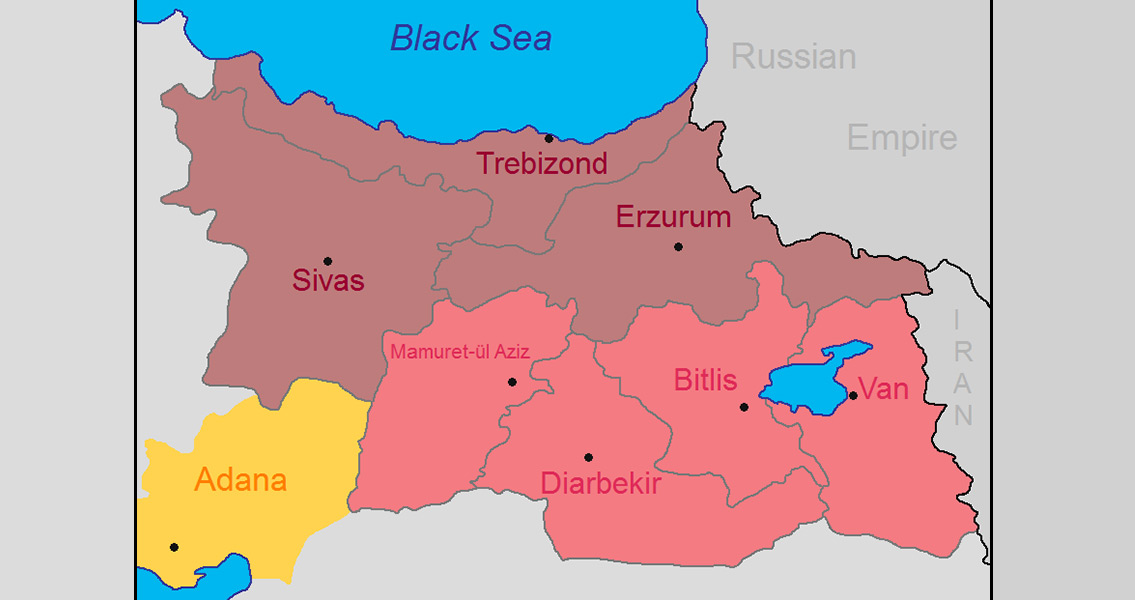<![CDATA[The Armenian Reform Plan was signed into law on 8th February, 1914. The agreement is an often overlooked moment which marked both the deterioration of European diplomacy into the First World War, and the onset of events which would culminate in terrible tragedy for the Armenian people. Russia and the Ottoman Empire were the agreement's signatories. It granted autonomous administrative rights to Armenians in the six provinces of Turkey where their population was most heavily concentrated. Two inspector generals were also established by the new agreement. Appointed by agreement between Britain, France, Russia and Italy, the inspector generals would hold judicial authority over the Armenian provinces. On a regional level, the agreement was the result of a long campaign by the Armenians to gain recognition and equality within the Ottoman Empire. For centuries they had suffered political oppression, largely as a result of their Christian beliefs. As the Empire entered its decline in the nineteenth century, the situation worsened, as growing Turkish nationalism and resentment focused oppression on all non-Muslim elements of society. The fact that the Armenian community seemed to be so successful in the face of the decline only served to exaggerate that resentment. The Armenian National Delegation (AND) had been founded to campaign for autonomy. After the failure of Turkey's new constitutional government to implement significant reforms, and the aggressive nationalism which came in the wake the Young Turks' coup d'etat, the AND began to lobby other European countries to push for changes within the Ottoman Empire. The upheaval in Turkey following defeat in the First Balkan War (1912-1913), provided the perfect moment for the governments of Russia, Britain and France to pressure the Ottoman Empire into instigating change. Beyond mere concern for Armenian well-being, the intervention of other European powers in the Armenian question was in fact symptomatic of the complicated international tensions dividing Europe in the run up to the First World War. Armenian grievances became a vehicle for the geostrategic goals of empires. For Russia, the benefits of greater Armenian autonomy were clear. The territory in question was close to the Turkish-Russian border. Since the turn of the century Russia had endeavored to undermine the struggling Ottoman Empire, its main rival for influence in the region. Greater Armenian independence would push the Ottoman Empire closer to dissolution, and boost Russia's chances of gaining access to the Mediterranean Sea. Britain and France tacitly backed Russia in its intervention in the Armenian question. Germany had forged close ties with the Ottoman Empire, which the members of the Triple Entente considered an attempt by the Kaiser to assert greater influence in the valuable region. Highlighting the increasingly polarised state of Europe, Germany vetoed the initial terms of the Armenian Reform Plan. The original intention of the agreement was to join the six Armenian-inhabited vilayets, or districts, into a single province. The German opposition saw the agreement modified to create two separate provinces instead. The Armenian campaign to end political oppression, which resulted in the Armenian Reform Plan, was used by the imperial powers of Europe to achieve their geopolitical goals. The tragic consequence however, was that within the Ottoman Empire it fueled the sense that Armenians were in league with Turkey's rivals, increasing already smoldering resentment against them with horrendous consequences. The outbreak of the First World War later in 1914 meant the terms of the agreement never really took effect. With Russia, Britain, France and Germany distracted by war, the Armenians were left unprotected. In April 1915, 200 Armenian intellectuals were arrested, accused of supporting Russia. It proved the first step in what is now widely referred to as the Armenian Genocide.]]>
Armenian Reform Plan Lays Path to War and Genocide
